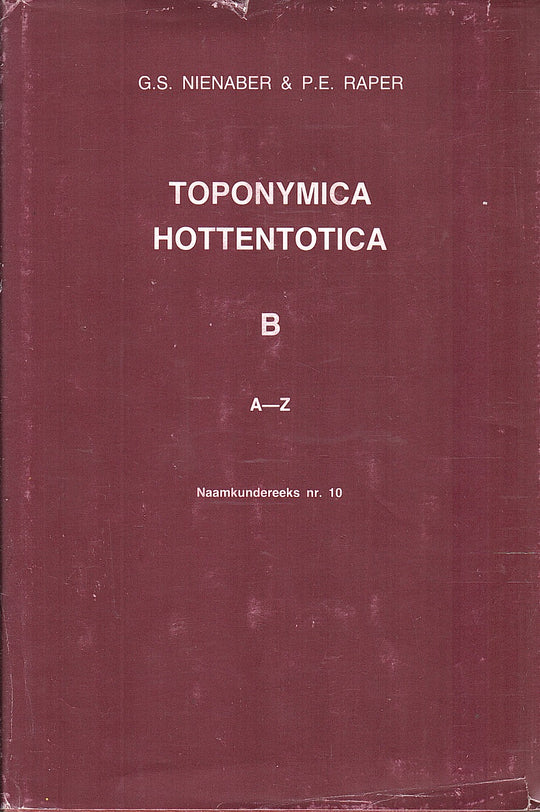Guinaus
The name apparently disappeared for the fountain (Nama ǀ AU-S, indicated by Dr Hartmann with a sign specifically as a separate syllable) where it (inner or around) swarmed, Nama Gui = 'Wimmeln' (Kr.r. 1969 NW 137). The current nationity of the two-sound is in the name realized as a nasal consonant, GUI actually originated from Guin. Guin can also be seen as the Comm. Pi. Of Gui = Melkbos, so Guin- Aus then translated as 'milk box fountain', or (grammatically better) than 'Melkbossefontein', but Mr Krenz warned in th a * 474 under Guiab that 'Northeast of Outjo is not milk bushes'. If the Melkbos occurred at this place, the statement would. In particular, linguistically satisfied well.
About this item
Identifier
3777_SKCPN
Title
Guinaus
Alternative Title
Guinaus
Georeference Sources
S 1918 AC
Is Part Of
longitude
18.125
latitude
-19.375
Measurement Accuracy
12.5 km radius
Source
eng
Hartmann 1904 map 'Guin-aus', source on the road from Grootfontein northwards, nearby Abenab, north-east
afr
Hartmann 1904 kaart 'Guin-aus', bron aan die pad van Grootfontein af noordwaarts, naby Abenab, noordoostelik daarvan
Description
eng
The name apparently disappeared for the fountain (Nama ǀ AU-S, indicated by Dr Hartmann with a sign specifically as a separate syllable) where it (inner or around) swarmed, Nama Gui = 'Wimmeln' (Kr.r. 1969 NW 137). The current nationity of the two-sound is in the name realized as a nasal consonant, GUI actually originated from Guin. Guin can also be seen as the Comm. Pi. Of Gui = Melkbos, so Guin- Aus then translated as 'milk box fountain', or (grammatically better) than 'Melkbossefontein', but Mr Krenz warned in th a * 474 under Guiab that 'Northeast of Outjo is not milk bushes'. If the Melkbos occurred at this place, the statement would. In particular, linguistically satisfied well.
afr
Die naam het blykbaar verdwyn vir die fontein (Nama ǀau-s, deur dr Hartmann met 'n deelteken spesiaal as aparte lettergreep aangedui) waar dit (daarbinne of daaromheen) gewemel het, Nama gui = 'wimmeln' (Kr.-R. 1969 NW 137). Die huidige nasaliteit van die tweeklank is in die naam ge- realiseer as 'n nasale konsonant, gui het eintlik ontstaan uit guin. Guin kan ook gesien word as die comm. pi. van gui = melkbos, sodat Guin-aus dan te vertaal is as 'Melkbosfontein', of (grammaties beter) as 'Melkbosse- fontein', maar mnr Krenz het in TH A* 474 onder GUIAB gewaarsku dat 'noordoos van Outjo geen melkbosse is nie'. Indien die melkbos tog op hierdie plek voorgekom het, sou die verklaring i.v. daarmee veral taalkundig goed bevredig het.
page start
_380




